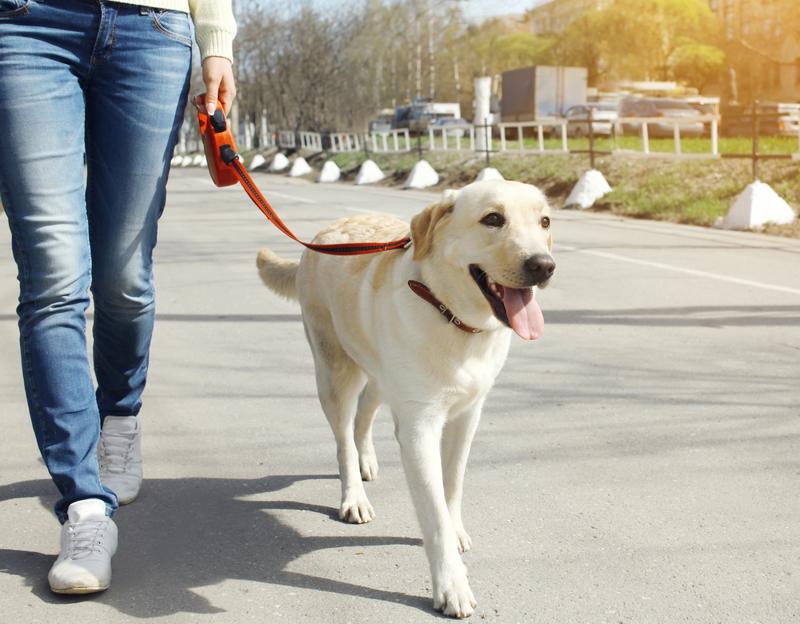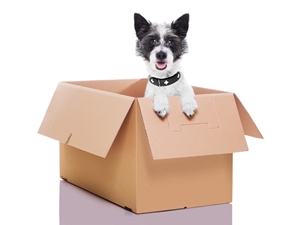For pet owners, there's nothing quite as gratifying as coming home to the sloppy kisses and wagging tail of a four-legged best friend. Unfortunately, many life circumstances can stand in the way of owning a pet, such as relocating or a tight budget. However, travel nursing doesn't have to be one of those obstacles. In fact, taking your dog along on a travel assignment can be a rewarding experience – it certainly was for surgical technologist Jessica Canchola. Learn more about Jessica's experience:
Jessica and Peak: A furever bond
Just over two years ago, an Arizona humane society found a Red Heeler chasing cattle on a Navajo Reservation. Rescuers put the pup up for adoption, and that's how Jessica found her new best friend. She named the pointy-ear dog Peak, and they've been a dynamic duo ever since.
Peak is now 3 years old, and when taking her first travel nursing assignment with healthcare staffing agency Aureus Medical, Jessica knew she couldn't leave her fur baby behind.
"I didn't have any hesitations at all," Jessica recalled. "I was bringing her with me, or I wasn't accepting an assignment."
Jessica collaborated with her recruiter to come up with a plan that included her dog. This meant using extra scrutiny when looking at both the geographic location and housing options. Additionally, Jessica advised other travel healthcare professionals look closely at apartment pet policies before signing a contract – you'll want to ensure your dog is welcome before you show up, pup in tow. And many apartments will require a pet deposit.

Preparing for the travel nursing assignment
Many apartments won't take pet renters unless the animal is up-to-date on its shots, so Jessica needed to sort this aspect of pet ownership out before embarking on her journey. That meant making sure Peak had the appropriate vaccines and was protected from heartworm, fleas and ticks.
Jessica also advised to ask the veterinarian for anti-anxiety medications. This may be helpful for both long car rides and when you're working your shifts at your travel assignment. According to the American Society for the Prevention of Cruelty to Animals, changes in schedule and where you live can trigger separation anxiety in pets. This condition can manifest in barking, urinating in the house and chewing things the dog normally wouldn't touch. For both your and the puppy's sanity, speak with your vet about preventing anxiety issues.
After this process, Jessica sent a picture of Peak as well as documentation of the dog's health history to her recruiter, who used the information to find a suitable home for the pair.
Scoping out the scene
Jessica's first assignment was in Lexington, Kentucky, which is home to plenty of dog parks. She did some research before the move to find out the location of the pet playgrounds, and these venues were some of Jessica and Peaks' first stops when they arrived.
Hitting up the dog parks was good for Peak and for Jessica. According to veterinarian Dr. Karen Becker, dogs need a minimum of 20 minutes of exercise, three times each week. By regularly going to the dog park, Peak got her required physical activity, which reduces her risk for arthritis. Meanwhile, Jessica found opportunities to make friends.
"While she was frolicking, I was chatting up the locals," Jessica explained.
Meeting new people is one of the benefits of a career in travel healthcare, but it's not always easy. Finding the local hot spots and building relationships takes time in general. Having a pet may speed up this process as it connects you with fellow dog lovers.
"I love being greeted with lots of slobbery kisses."
The work-dog balance
Perhaps the biggest benefit of bringing Peak along for the journey was the dog's ability to relieve Jessica's stress. For one thing, having a pet makes exercise essential. Beyond their regular trips to the dog park, Jessica made sure she and Peak got their daily physical activity by going for a long walk each morning. This is especially important for those working in a potentially high-stress job like nursing. According to the Mayo Clinic, exercising releases endorphins – the anxiety-relieving neurotransmitter.
Additionally, Peak is there to greet Jessica every day after work, and animals have proven to be great stress relievers all on their own. According to HelpGuide, dog owners are less likely to be depressed than those without pets. Additionally, playing with animals can increase serotonin and dopamine levels, making you feel relaxed and calm.
"I love coming home from a long shift, being greeted with lots of slobbery kisses and cries for attention. She definitely makes my heart melt!" she said.
That said, taking a pet along isn't without challenges. While Peak was able to stay in Jessica's apartment on her own just fine. Other dogs may require pet care during shifts. Additionally, dogs need to regularly visit the veterinarian, so it's important to find a trusted professional with each assignment locale.
Bringing your dog along for your travel nursing assignment can make the experience even better. If you're considering traveling with your pet, be sure to talk to your recruiter to find out what steps you should take.


When I decided I wanted to be a travel nurse, In my mind I said if Simon (my weimaraner) then I am in !! Checking into all the new and wonderful possibilities travel has to offer . I just couldnt leave my Pooch for any long length of time . Yay! for traveling nurses with pets . and double YAY to aureus for thinking of us !
Correction: Jessica Canchola is a Surgical Technogist not Registered Nurse 🙂 🙂
We apologize, Jessica! We will get that corrected!
We travel with our family very often with our pets, because that’s the only way we can all spend time together.